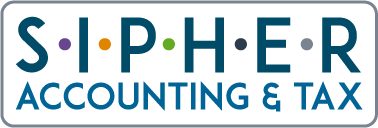It always nice to get January out of the way, seeing the mornings getting lighter and slightly longer evenings. But before you get carried away with the promise of Spring, get your self-assessment tax done and dusted!
You must file your self-assessment tax return and pay any personal tax due by the 31st January to avoid racking up interest and HMRC penalties.
How to pay
There are several ways you can settle your self-assessment tax bill, but don’t forget that personal credit card isn’t one of them, as HMRC has stopped accepting that as a method of payment.
You can read our blog on this here – HMRC calls time on paying tax bills by credit card
The deadline of 31st January is when HMRC must receive funds, so make sure you leave sufficient time for your payment to go through.
Here are the remaining payment methods open to you, along with how long they take:
Debit card or corporate credit card – same day
You can pay HMRC online here using a debit card or a business credit card. (Note there is a non-refundable fee for using the latter).
You should use your 10-digit Unique Tax Reference (UTR) and put K at the end as a payment reference. Click here for what to do if you can’t find your UTR number.
Be aware that there are rules against using multiple cards for the same type of tax – you can only make an extra payment to HMRC using a different card if it is for a different tax, such as Corporation Tax or employers’ PAYE.
Bank transfer – up to 3 days
You can pay HMRC using your online or telephone banking, or banking app. There are three types of bank transfer:
- Faster Payments will usually reach HMRC same day, including weekends and bank holidays
- CHAPS payments should go through on the same working day so long as you pay within your bank’s processing times
- BACS payments normally take 3 working days.
If you are paying from overseas, payments can take longer, so check with your bank.
Direct Debit – up to 5 days
You can set up a Direct Debit through your HMRC online account to make a single payment for 31st January. Again you will require your UTR number to do this.
You’ll need to set up single payments each time you want to pay by Direct Debit.
You should allow 5 working days to process a Direct Debit the first time you set it up, after that it should take 3 days so long as you are using the same bank details.
Cheque in the post – 3 working days + postage time
You can send a cheque to HMRC in the post, but it will take a minimum of 3 days to clear along with postage time.
You should make the cheque payable to “HM Revenue and Customs only” followed by your UTR number.
You also need to include the paying-in slip from your HMRC paper statement, but if you don’t have one you can print one off here.
Send your cheque to the following address:
HMRC
Direct
BX5 5BD
At your bank or building society – same day
You can physically go to your bank or building society branch and make a payment by cheque or cash so long as:
- You still get paper statements from HMRC
- You have retained the paying-in slip HMRC sent you.
If you pay across the counter, (so long as it is a weekday) HMRC will accept your payment on the date you make it, and not the date it reaches their account.
Payment plan
If you are up to date with your self-assessment tax payments you can set up a “budget payment plan” to make regular payments to HMRC in advance. This lets you decide on an amount to pay every week or month.
You can set this up on your HMRC online account, just select budget payment when you are completing the Direct Debit form.
This option means that you are not faced with a lump-sum payment at the end of January, although if the total you pay over the year doesn’t cover the tax due, you’ll have to pay the difference by the payment deadline.
Alternatively you could do a “DIY” version of a budgeting plan, by moving a certain amount each month from your personal account into a dedicated savings account to cover your self-assessment tax bill.
Through your tax code
If you already pay tax through the PAYE system, for example if you are employed or receive a company pension, you can pay your self-assessment tax bill through your tax code.
To do this you must have submitted your online return by 30th December and owe less than £3,000.
HMRC will adjust your tax code to recover the tax you owe from your salary or pension in equal instalments over 12 months.
Difficulty paying your self-assessment tax
If you have filed your self-assessment tax return but are having difficulty coming up with the amount you owe, the worst thing you can do is try and ignore it.
It is in HMRC’s interest to recover the debt however they can, even if this means agreeing to a payment plan that you can afford. The important thing is to talk to them and express your intention to pay.
It may also help to read our blog “5 things to know if you can’t pay your self assessment tax bill”
Help with personal tax
If you need help with self-assessment or any personal tax matter, we are happy to quote for the work you require on an adhoc basis, whether or not you are already a Boox client.
You can email the personal tax team at or call the main office number.

